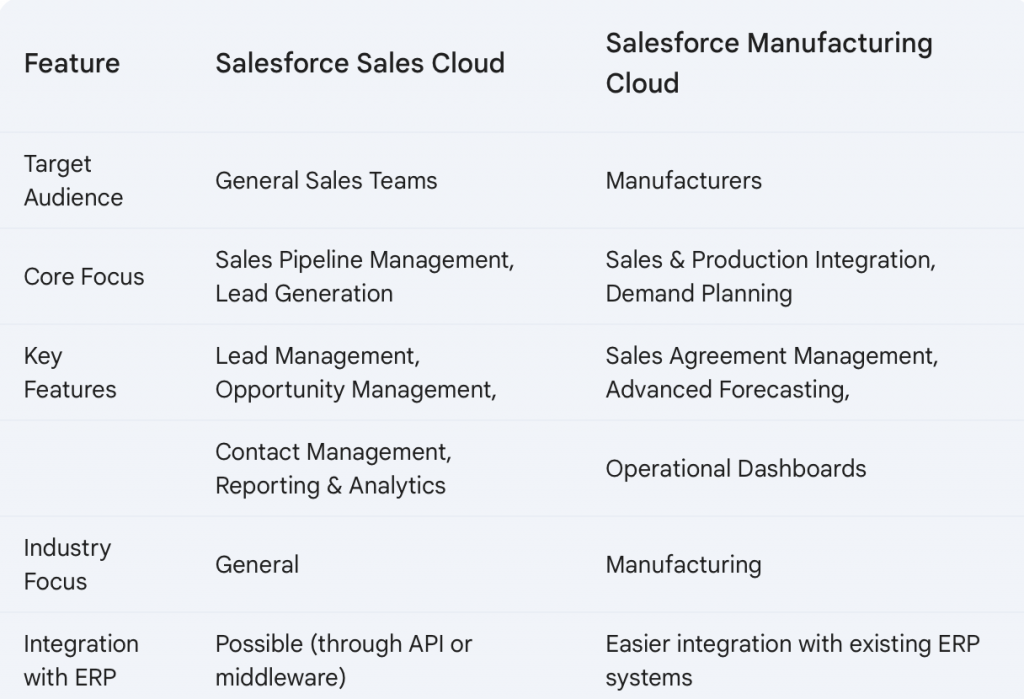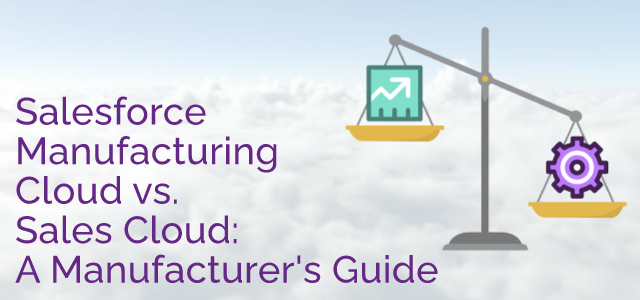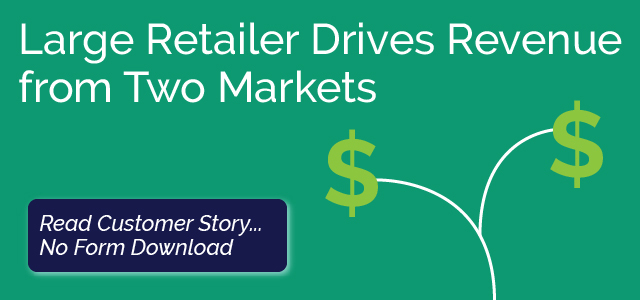Salesforce Manufacturing Cloud vs. Sales Cloud: A Manufacturer’s Guide
Estimated reading time: 4 minutes
As a manufacturer, navigating the complex world of customer relationship management (CRM) solutions can be tricky. Two prominent options within the Salesforce® ecosystem are Sales Cloud™ and Manufacturing Cloud™. While both offer valuable tools, they cater to distinct aspects of your business. Let’s delve into their differences to help you pick the right fit.
Understanding the Core Functions
- Sales Cloud: This is the foundation of Salesforce, focusing on managing the sales pipeline. It excels at lead generation, opportunity tracking, contact management, and sales forecasting. Sales Cloud streamlines your sales process, improves lead nurturing, and fosters better communication with potential and existing customers.
- Manufacturing Cloud: Built on top of the Sales Cloud platform, Manufacturing Cloud extends its capabilities with industry-specific features. It integrates seamlessly with existing sales functionalities while adding functionalities crucial for manufacturers. These include:
- Sales Agreement Management: Streamline complex contracts with customers, ensuring clear pricing, volume, and order fulfillment details.
- Advanced Forecasting: Gain deeper insights into production capabilities and customer demand. This allows for data-driven decisions on resource allocation and inventory management.
- Operational Visibility: Track production schedules, materials management, and quality control processes. Identify bottlenecks and optimize production efficiency.
Side-By-Side Comparison

Choosing the Right Cloud Solution
The decision depends on your current needs and future goals. Here’s a breakdown to guide your selection:
- Choose Sales Cloud if:
- You’re a manufacturer with a simple sales process.
- You primarily focus on managing sales teams and opportunities.
- You don’t have a complex production environment, and basic forecasting suffices.
- Choose Manufacturing Cloud if:
- You require advanced features for managing sales agreements, production planning, and operational visibility.
- You want a CRM that integrates seamlessly with your existing ERP system.
- You aim to optimize production efficiency and improve data-driven decision-making for sales and manufacturing.
A crucial point to consider: Manufacturing Cloud builds upon Sales Cloud. This means you get all the functionalities of Sales Cloud (lead management, opportunity tracking, etc.) plus the additional manufacturing-specific features.
The Power of Combining Forces
Manufacturers with established sales teams likely have Sales Cloud in place. In such cases, transitioning to Manufacturing Cloud provides a significant advantage. You can leverage your existing sales data while gaining the power to optimize production and improve overall business efficiency.
Here’s how the two clouds work together:
- Sales teams utilize Sales Cloud to nurture leads, close deals, and manage customer relationships.
- Manufacturing Cloud takes over once a sale is confirmed. It integrates with the agreed-upon pricing, volumes, and fulfillment details from Sales Cloud. This ensures production aligns with sales commitments.
- Manufacturing Cloud provides real-time production data that feeds back into Sales Cloud. This allows sales teams to provide accurate lead times and adjust forecasts based on actual production capabilities.
This seamless integration creates a unified information hub, fostering better collaboration between sales and manufacturing teams. Ultimately, this translates to improved customer satisfaction, reduced production bottlenecks, and increased profitability.
Summary
Salesforce offers a powerful CRM ecosystem for manufacturers. When deciding between Sales Cloud and Manufacturing Cloud, consider your specific needs. Sales Cloud excels at managing the sales pipeline, while Manufacturing Cloud adds an industry-specific layer for optimizing production and integrating with existing systems.
For a manufacturer seeking a comprehensive solution to streamline sales, improve production efficiency, and gain real-time data insights, Manufacturing Cloud emerges as the clear winner. However, if your sales process is straightforward and production management is less complex, Sales Cloud might be sufficient for now. Remember, you can always migrate to Manufacturing Cloud later as your business needs evolve.
How AdVic Can Help
Implementing Salesforce Manufacturing Cloud or Sales Cloud is a strategic decision that can significantly transform your manufacturing operations. Partnering with a Salesforce for Manufacturing Consulting Team, like AdVic®, can help you maximize the value of this powerful platform. Our team, with proven expertise and industry-leading certifications, can help you develop a customized plan to achieve your specific goals. Schedule a day and time to talk with us.
Related Resources:
Manufacturing in the Fast Lane: How Salesforce Manufacturing Cloud Puts You in the Driver’s Seat
Salesforce for Manufacturing
Manufacturing Cloud Accelerator
Subscribe to the AdVic Salesforce Blog on Feedly:




